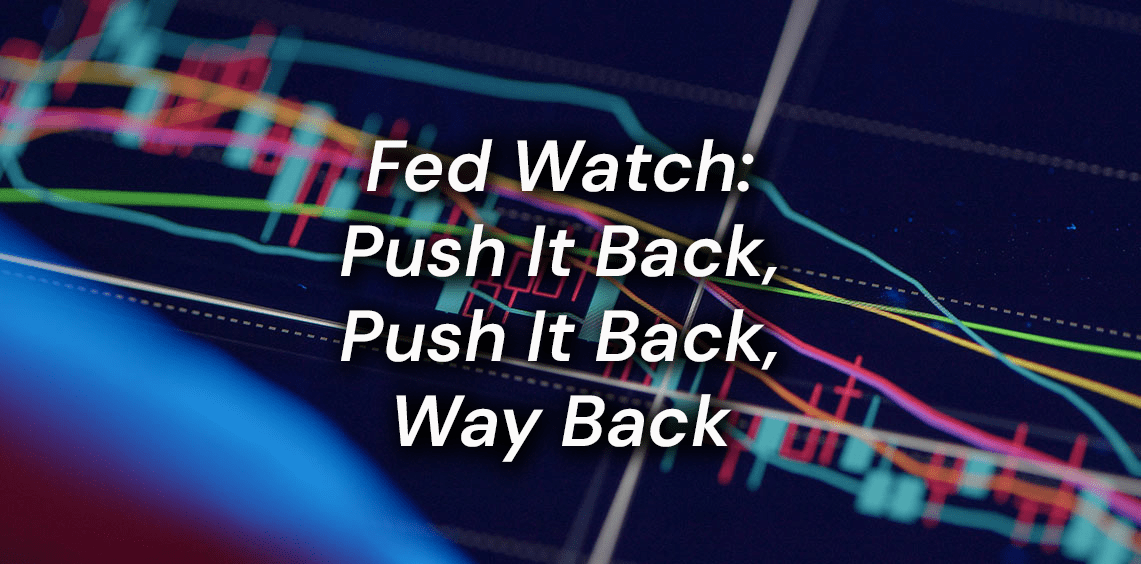I thought inflation indicators were going to be the most important news items last week, but reality did not turn out that way. We had two inflation reports: the CPI and the PPI. Both came in quite tame—at or below expectations.
Whisper numbers were for a hot set of inflation reports and the market was likely positioned defensively, so we had a good reaction when these data came in below expectations. This certainly was not ammunition for hawks at the Fed. And the data might come in even better in May, as oil prices are down from where they were in the middle of April when CPI/PPI was surveyed. Gasoline is down. Used car prices are also softening.
What raised my eyebrows last week was jobless claims, which broke out higher and 20,000 job losses over expectation and the highest in well over a year. Jobless claims are the earliest real indicator for the economy. This is also a notoriously volatile indicator, so we need to see a string of elevated jobless claim reports to confirm a trend.
But my sense is the labor market will weaken and this is the key data the Fed needs to see to pivot and end the rate hiking cycle. Specifically, negative payrolls reports and a tick up in unemployment rate should halt the Fed. But in general, jobs reports are becoming more important than the inflation reports for anticipating rate policy. The Fed has a formal dual mandate, and we are getting into political season and pressure on the Fed will mount—it is already facing criticisms from Democrats.
I was a little surprised by Friday’s University of Michigan consumer sentiment data. It is a well-regarded sentiment and inflation indicator and there was a drop way below expectations for consumer sentiment. It did not drop as low as last year, but it is still moving down. What was not good for the Fed was that long-term inflation expectations ticked higher-and I think that sent bond yields higher in Friday’s trading.
We are getting a lot of headlines about the debt ceiling. My belief is that we will not get a default. I also do not think June 1st is really a hard deadline. I believe Democrats feel pressured to meet the Republicans in some way. I think if they met them halfway, that is a good political position for the Democrats. If the Republicans get half of what they want, it can be regarded as a victory. What is most likely is another ‘kick the can’ down the road measure to extend the debt issue until right before the presidential election.
Bottom line: Treasury bill yields are elevated. It is not a good sign credit default swaps were showing a higher risk on U.S. government debt than that of Brazil. But we are 99 to 1 odds the U.S. government will not default on its debt.
When you combine a subdued outlook for the economy with falling consumer sentiment, rising jobless claims and fear of recession rising, value stocks suffered relative to growth stocks; the latter are viewed as bastions of stability and less economically sensitive. The dollar has been soft and that helps large cap tech stocks that have disproportionate profits overseas.
Summarizing my views: I remain cautious on the markets. Value stocks are also taking hits from fears of further fallout from the regional banking failures. I think tightening lending restrictions will further crimp the economy. The market is positioning for a mild recession and certainly there is risk it could deteriorate further until the Fed really pivots towards cutting rates.
Past performance is not indicative of future results. You cannot invest in an index.
Professor Jeremy Siegel is a Senior Investment Strategy Advisor to WisdomTree Investments, Inc. and WisdomTree Asset Management, Inc. This material contains the current research and opinions of Professor Siegel, which are subject to change, and should not be considered or interpreted as a recommendation to participate in any particular trading strategy, or deemed to be an offer or sale of any investment product and it should not be relied on as such. The user of this information assumes the entire risk of any use made of the information provided herein. Unless expressly stated otherwise the opinions, interpretations or findings expressed herein do not necessarily represent the views of WisdomTree or any of its affiliates.






